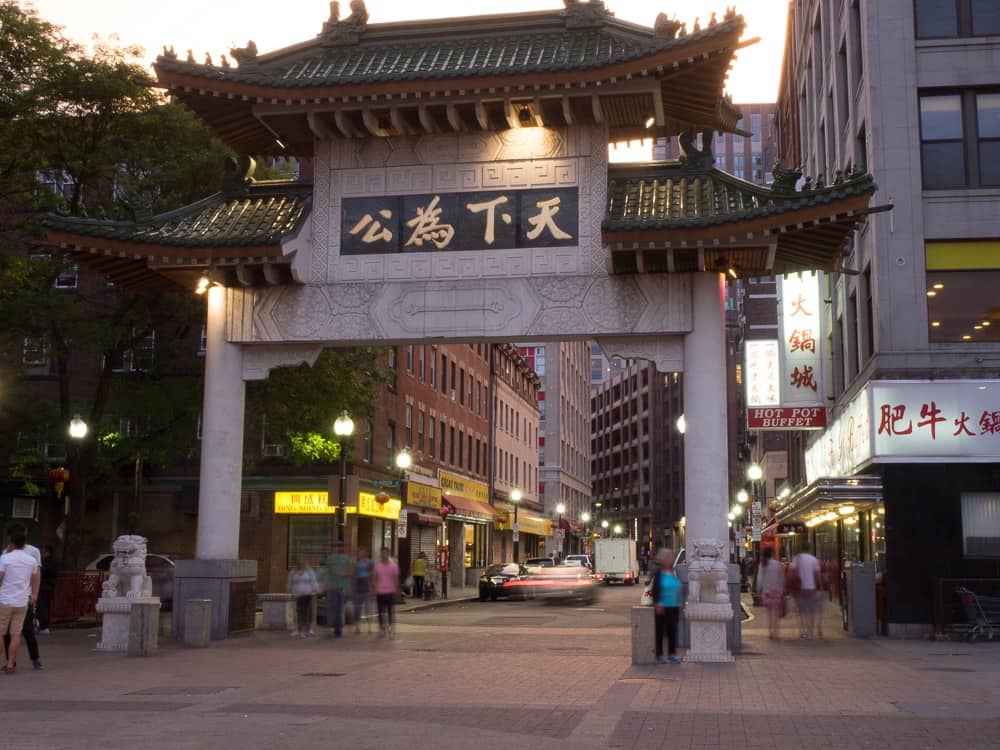As the third largest Chinatown in the country, Boston’s sprawling neighborhood of spice, tradition and fun is a favorite to explore by locals and tourists alike. It’s opening paifang, or traditional gate that had stood to mark the entrance since 1982 shows its central location between the financial district and the Back Bay. Although there’s been a few instances in an unsavory past, Chinatown currently thrives and welcomes people to explore a rainbow of Asian cuisine, festive events and interesting shopping opportunities.

Chinatown History
Settled by many Asian communities from China began when land was undesirable near railways in the 19th century. Other Jewish, Syrian and Italian immigrants also settled there but moved onto other parts of the city when factories began to employ primarily Chinese residents. Through city programs and job opportunities as well as a sense of community, nearly 70 percent of today’s Boston Asian population lives in the neighborhood. It is also one of the most densely populated areas with 28,000 people per square mile.
Chinatown Highlights
From Taiwanese dumplings and Japanese sushi to mouthwatering pad thai and Chinese noodles, there is a wide assortment of incredibly diverse and tasty cuisine in Boston’s Chinatown. A good rule of thumb is to follow your nose and choose restaurants that are lively and full of locals. To start, traditional dim sum pushed by on carts can be found at Hai Lei Moon, and super hot Taiwanese soup dumplings are made fresh at the Taiwan Café. These, along with hot pot, Chinese bakeries and more can be found along Beach Street and beyond.
A true experience demands a 24-hour call in advance, but it is well worth the effort. For crispy, perfectly prepared Peking duck, people flock to China King on Beach Street. The three-course meal includes homemade noodles, bone broth and steamed pancakes.
Not only does Chinatown have classic restaurants featuring iconic dishes from all over Asia, a few new fusion and modern hotspots have also begun to take over. Shojo is one of the newcomers enticing young professionals from the nearby business district to try pork bao and drunken noodles with classy cocktails.
There are also other things technically within Chinatown worth experiencing. Dewy Square in front of the Chinatown gate often hosts fun and trendy food trucks, such as the Chicken and Rice guys. There is a new hostel from Hosteling International on Stuart Street that draws many international guests, and there is a historic German pub next door to the hostel that throws one of the best Oktoberfest events in the city every year.

Chinatown Annual Events
With the city’s highest concentration of Asian immigrants and those honoring their heritage, the events held in Chinatown mimic many from home. For instance, Chinese New Year in the winter brings along a massive parade featuring dancing red lions, firecrackers and lively music. The space by Chinatown’s main gate is shut down just for pedestrians enjoying the festivities. Throughout the year, there are also annual open-air flower markets in February, food festivals in June and mooncake celebrations at the end of summer.
